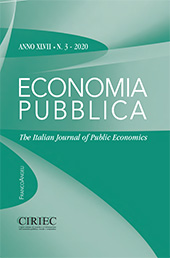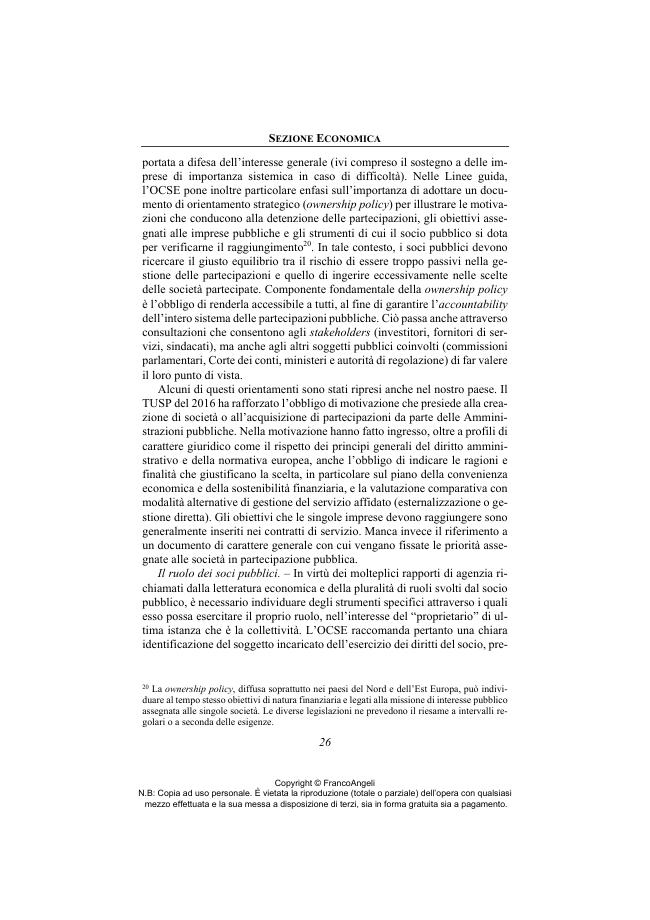Da 8.000 a 1.000? : razionalizzazione e governance delle società pubbliche
7-44 p.
La regolazione delle partecipate pubbliche tra disposizioni di finanza pubblica e necessità industriali L'articolo analizza gli effetti della riforma introdotta dal Testo unico sulle Società a Partecipazione Pubblica nel mondo delle Public Utilities e delle società pubbliche in generale. Il testo parte da una analisi del contesto di riferimento, dagli anni Novanta ai giorni nostri, riportando le vicende di un Comune capoluogo di provincia e si sofferma, più in generale, sulle caratteristiche del mondo delle società partecipate in Italia. Successivamente ci si sofferma su alcuni profili critici del Testo Unico, criticandone da una parte la poca incisività su alcuni temi ritenuti, dal legislatore stesso, importanti. Una questione è quella delle perdite, dove si sottovaluta la loro concentrazione in poche società.
La seconda riguarda la eccessiva penalizzazione dell'in-house providing, richiedendo di rivisitare il quadro legislativo di sfavore. La terza si riferisce all'assenza di una visione industriale, sostenendo che sia puntare alla crescita dimensionale delle imprese, favorendo le aggregazioni. [Testo dell'editore].
This article analyzes the effects of the reform introduced by the Consolidated Law of Public-owned companies (D.Lgs. 175/2016 or TUSP) in the world of Public Utilities and Local Government-owned Companies in general. The text takes its lead from an analysis of the context of the Local Government Authorities, from the 90s to this day, reporting to the events of a LGA and focuses, generally, on the characteristics of the world of Local Government-owned Companies in Italy. Then, we focus on some critical aspects of the TUSP, criticizing, on the one hand, the weakness of some issues, considered important by the Legislator.
The first point is the financial losses, where their concentration in a few companies is underestimated. The second aspect concerns the over-penalization of in-house providing, requiring the revisiting of the disadvantaged legal framework. The third question refers to the absence of an industrial vision, which is the focusing on the enterprises growth, promoting the business combinations. [Publisher's text].
Is part of
Economia pubblica : XLVII, 3, 2020-
Articles from the same issue (available individually)
-
-
Information
ISSN: 1972-5566
KEYWORDS
- Public utilities, società pubbliche, in house providing
- Public utilities, local government-owned companies, in house providing



